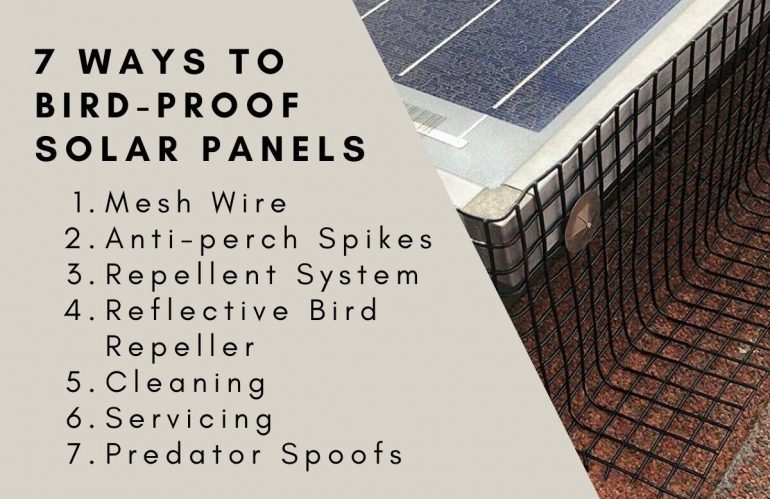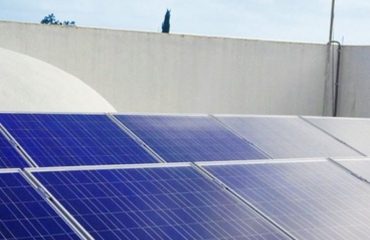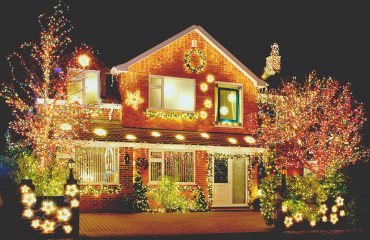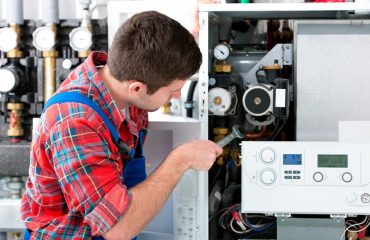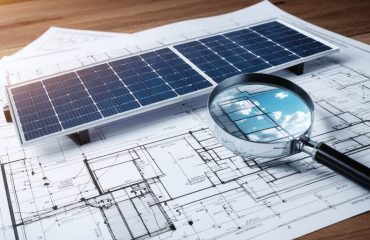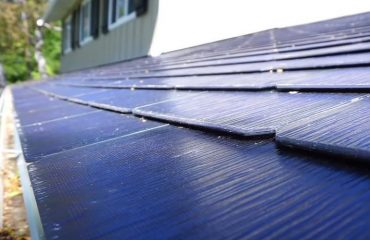A physical barrier (bird mesh) is the most efficient and long-term solution for preventing birds from living around or under solar panels, despite the fact that there are several different bird-proofing options available. While other methods can be effective, they require a lot of maintenance and are unsightly. Let’s take a look at the various bird-proofing methods.
7 Proven Techniques for Pigeon-proofing Solar Panels
Below are a few methods for pigeon-proofing solar panels and preventing a shit show:
#1. – Bird Mesh Wire Installation
An appealing solution that will protect solar panels is installing a bird mesh on your roof. It can be installed without affecting the warranty by being clipped directly into the panels.
They are also simple to remove during solar panel cleaning and maintenance since they are secured in place by a nut and washer. It is recommended to use high-quality stainless steel mesh to pigeon-proof solar panels.
Due to its long-term effectiveness and low maintenance requirements, solar panel installation and maintenance experts strongly recommend bird mesh as the best approach.
#2. – Anti-perch Bird Spikes
Pigeons are prevented from birds nesting nearby by anti-perch spikes, making the solar site less tempting as a habitat for birds. The spikes can be mounted around solar panels.
Spikes are UV-resistant and are formed of premium-grade stainless steel.
#3. – Bird Repellent System
Two types of technologies are used in an automated solar panel bird deterrent system. These deterrents include flashing lights, reflective tape, and bird scarers. Such systems can be installed next to solar arrays, and are quite effective in keeping pest birds away.
Sound deterrent system: It is a device that generates loud noises that birds find unpleasant.
Visual deterrent system: It is a device that produces a light that birds find unpleasant.
#4. – Install Reflective Bird Repeller
Installing reflective mirrors on the house roof can also work as a bird deterrent. Reflectors harness the sun, wind, and reflecting lights to frighten away birds.
However, repellents and spikes are visible from the ground and require high maintenance.
#5. – Solar Cleaning & Maintenance
It is essential to regularly clean the solar panels to reduce the strain on the modules and maintain the solar system’s lifespan. Maintaining clean surroundings around solar panels will prevent rats, snakes, and insects from moving in and protect your roof from bird traffic.
You probably won’t require bird deterrents if you didn’t have bird trouble before installing the solar power system. Having said that, it is best to keep pigeons out of your area as soon as you hear their coo and wing clap.
Dismantling solar panels to clean underneath can be significantly more costly. It is preferable to have a professional handle solar panel cleaning.
#6. – Servicing Requirements Can Vary
Most systems that receive enough rain to maintain their solar cleaning should be checked every five years. Conversely, some systems require expert cleaning every few months as even a small amount of bird fouling can have a significant adverse effect on yield.
If your residential roof is a magnet for pest birds, a small solar investment in bird proofing will boost your energy outputs and cut down on cleaning expenses.
The solar supplier will frequently guarantee your return on investment if you have a commercial solar system. Nobody likes to argue about pigeon droppings, yet cleaning costs might lead to arguments. Therefore, before accepting any quotations, keep an eye on the skies and, preferably, come to an agreement on your bird-proofing preventative and maintenance obligations.
#7. – Predator Spoofs
Placing predator fakes like eagles and owls on and near your roof is another tactic to deter pest birds and other creatures. It is important to move them around frequently, in order to prevent the birds from believing the predator statues are fake.
The birds won’t mess up your solar modules since they are afraid of predators. Protecting solar panels from pigeon droppings by using phoney predators is the cheapest method.
Size of Your Solar Panel Array
It should go without saying, that more solar panels will require more mesh and bird netting to protect the perimeter of your installed solar system. The majority of companies that provide pigeon proofing determine the final pricing on a per-panel basis.
Why Birds Are a Threat to a Solar Panel
Birds frequently land on rooftops that have solar panels installed and can leave a huge mess by nesting and chewing the system wires. Therefore, dry combustible debris might accumulate beneath solar panel arrays, creating a risk to electrical safety. The nesting material can retain heat, which may affect the system efficiency and solar panel lifespan.
Birds Carry Diseases
The health risk posed by bird droppings are frequently ignored, but they can seriously affect solar farm workers’ health. Besides being hosts to ticks and bird mites, pigeons and gulls are suspected of transmitting diseases like salmonellosis, ornithosis, and fowl pest.
To prevent diseases spread by pest birds, solar installers and other industry personnel must take precautions.
Damage
The longer the issue is left unattended, the more harm the birds are likely to have done to your solar PV system. Pigeon populations grow over time, thus the longer the problem is ignored, the greater the likelihood that there will be a mess.
The cost will ultimately go up since more labour and repairs are needed. To see how your solar system is doing and if there are any issues, you can always schedule a solar panel service with your contractor. In order to maximise your solar investment, your solar system must be maintained.
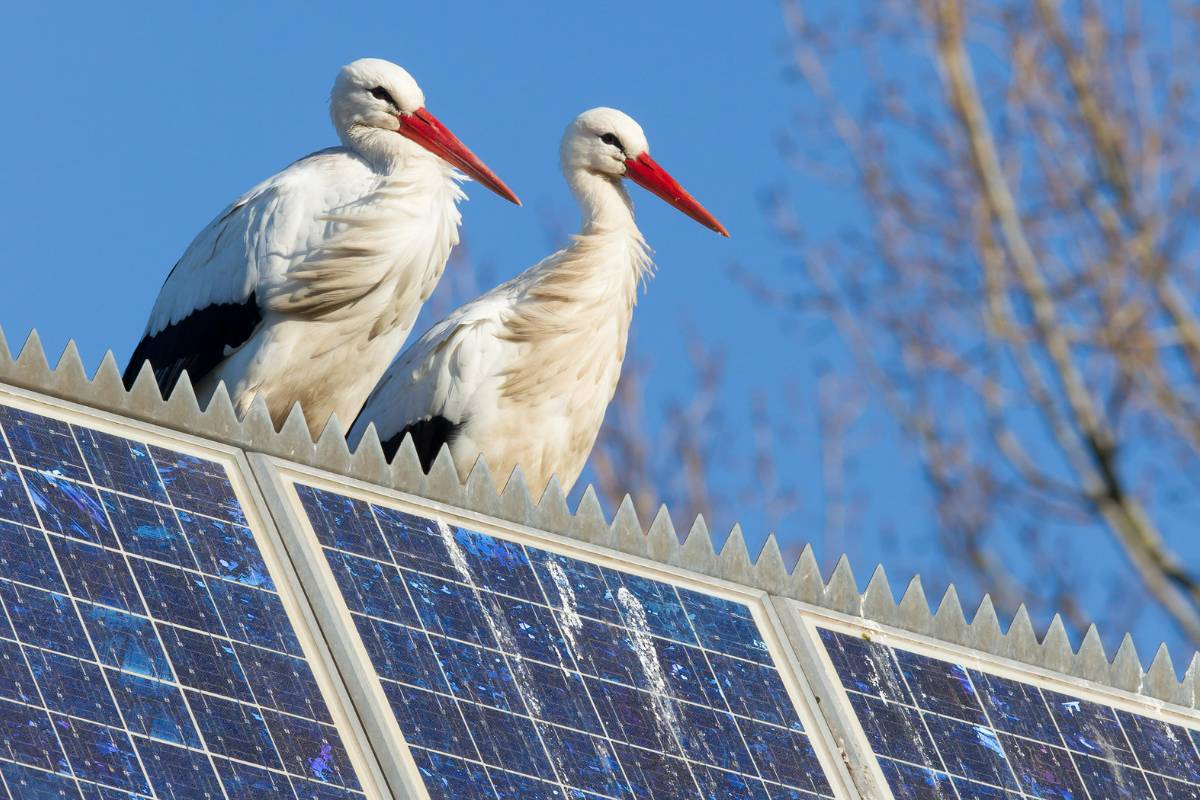
A properly fitting mesh can prevent the accumulation of leaf litter and other debris under your solar array, which is a significant fire threat, particularly for low-pitched roofs. Along with the same challenges that bird faeces can produce with roof damage and water leaks.
Last but not least, keeping squirrels, possums, rats, galahs, and corellas away may stop the wiring from getting chewed, preventing your inverter from exploding with an extremely dangerous short circuit to the ground.

